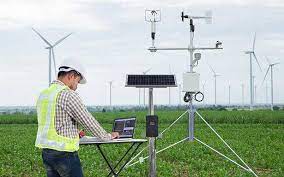08 Oct THE BAIN REPORT AND THE IDEA CONCEPT; Entry of Technology fixes and agri-business Investments in Indian Agriculture [GS I, AGRICULTURE AND GEOGRAPHY]
CONTEXT:
In June 2021, two significant documents relating to the Indian agriculture sector were released.
-
A consultation paper on the India Digital Ecosystem of Agriculture (IDEA) from the Ministry of Agriculture and Farmers’ Welfare (MoA&FW) → talks about a digital revolution in the agriculture sector and predicts a exhaustive investment growth in agri-logistics, offtake, and agri-input delivery by 2025.
The MoA&FW report describes creating data to fuel the growth predicted by Bain and Company.
-
Paper on Indian Agriculture: Ripe for Disruption from a private organisation, Bain and Company.
The Authors of the Bain report- Parijat Jain, Prashant Sarin and Shalabh Singawne have portrayed the agriculture reforms( announced by the union government) as a game-changer in the agriculture sector.
The Bain report:-
-
It is a data-based prediction on agri-business scenarios.
-
It predicts its next 20 years’ future trajectories.
-
It includes targeting the production of alternative proteins, and food cell-based food/ingredients and initiating ocean farming, etc.
-
The report has a ‘today forward– future back approach’ and predicts a drastic investment opportunity development by 2025.
The agriculture sector (currently worth $370 billion), is estimated to receive an additional $35 billion investment.
2 Reasons for such investments: Changes in the regulatory framework, in the Farm Acts and in digital disruption.
The report further discusses that benefiting from the huge investments into the agri-ecosystem, doubling farmers’ income targets can be achieved in near future.
The IDEA concept– consulting paper is based on the Task Force and Working Group report constituted by the MoA&FW to design the blueprint of DIGITAL AGRICULTURE— which is similar to the digital disruption mentioned in the Bain report.
The aim of the IDEA concept → the farmer and the improvement of farmers’ livelihood.
WAY to reach the goal→ through tight integration of agri-tech innovation and the agriculture industry ecosystem to farming and food systems.
In short, The IDEA concepts categorically speaks about data openness, which means open to businesses and farmers.
The IDEA architecture includes Value-added innovative services by agri-tech industries and start-ups.
In future, the Indian agriculture sector will enclose different aspects from the farm to fork and pave the way for a single national market with a national platform with better connection between producer and consumers.
Opposition of the IT industry to the IDEA → Ethical issue of creating a Unique Farmer ID based on one’s Aadhaar number as well as the potential for data misuse.
Goal→ Doubling Farmers Income,
The Bain report has not been widely discussed — at least in the public domain.
The assumptions used by authors of the Bain report, especially for its ‘future back approach’, need more or less focusing on widespread food production in controlled environments.
Undoubtedly, the factors including the emission, energy, resource footprints, and sustainability related to these techniques should be carefully studied.
However, the report has convincingly exhibited the business opportunity available in supply chains between farm to Agricultural Produce Market Committee (APMC) mandi and the customer, which can be realised with the support of digital disruption and the latest agriculture reforms.
The reports rely on digital disruption to improve farmers’ livelihoods, without discussing how much farmers will be prepared to benefit from these newly emerging business environments.
HINT FROM THE GOVERNMENT SIDE SHOWING THEIR STANCE:- Union government has hinted that they are serious about the digital support to the agriculture sector and have sought the support of States.
But technology fixes and agri-business investments alone will not be enough to improve farmers’ livelihoods
LIMITATIONS:
-
Majority of small and marginal farmers are not technology-savvy.
-
Most of them are under-educated
-
The Bain report relies on the general assumption only that more investments into the agriculture sector will benefit farmers.
-
Together, the two reports look forward to benefiting from the recent agriculture legislature changes without perceiving the requirement of the capacity-building at farmer’s end.
-
Politically, these two reports ignore the protest of farmers against the reforms without considering it as a barrier or risk factor resulting in a repealing of these new farm laws.
TO CONCLUDE:
From the point of view of the current scenario, a data revolution is inevitable in the agriculture sector, given its socio-political complexities, but solely on the basis of technology fixes and agri-business investments to improve farmers’ livelihoods, it is very difficult. The capacity building of the farmers in India is needed, by establishing support systems, through FPOs and other farmers associations where technical support is available for farmers. Considering the size of the agriculture sector of India, this is a difficult task but is achievable.
Download Plutus IAS CURRENT AFFAIRS 08th october 2021
Plutus IAS Current Affairs Team Member




No Comments